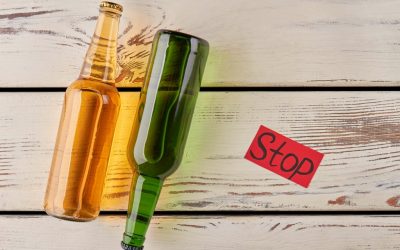This often leads to further alcohol consumption in an attempt to manage these heightened https://staging-palmerkippola.kinsta.cloud/sober-living/alcoholic-ketoacidosis-etiologies-evaluation-and/ emotions, perpetuating a destructive cycle. Determining how much minority-related stress is linked to increased alcohol consumption has been difficult for researchers to determine due to other risk factors among minority groups—such as drinking patterns and differences in alcohol metabolism. All individuals willing to participate in the study have to complete an online screening in advance of the main assessment, where basic demographic variables as well as all in- and exclusion criteria are assessed. Further, the usual alcohol consumption is measured using a self-administered timeline follow-back consisting of a calendar on which participants provide retrospective reports of average daily alcohol intake for the past 30 days 58. The information on daily alcohol consumption is used to allocate participants to the groups of regular and risky drinkers.

What is AUD?
Unfortunately, alcohol prevents our bodies from going back to their normal state, forcing it to set a new idea of adequately functioning. Additionally, researchers have linked cortisol to the development of metabolic disorders and psychiatric disorders such as depression. However, alcohol triggers our bodies to release higher amounts of cortisol. When alcohol as a coping mechanism alcohol shifts the average hormonal balance, the body changes its stress responses.

Shaking After Drinking: A Quick Guide to Causes and Solutions
Following the first post-test stress assessment, the experimenter provided instructions for the taste test, modeled after the procedure used by Marlatt and colleagues (Caudill & Marlatt, 1975). The participant was instructed that two glasses of beer would be provided and (s)he was to taste each beer and determine whether the two beers are identical or different. The participant was told that (s)he could drink as much as is needed to make a decision, but that (s)he must be accurate to receive compensation for this part of the study ($10).
ADDICTION AND MENTAL HEALTH TREATMENTS
Coping mechanisms are not inherently unhealthy, though many of them can be. If you’re concerned about your alcohol use, you can take steps to change your habits and find a more appropriate outlet. No matter why you are using substances, we can help you to rebuild your future.
As you begin implementing healthier coping skills, consider what your perfect day would look like. Find people, places, and experiences that honor these feelings and allow you to lead a life that aspires to that ideal. Drinking alcohol in social situations is acceptable and often encouraged in American culture — parties, sporting events, dates, even some movie theatres serve alcohol now. A true “social drinker” will have one — occasionally two — drinks in these situations. If you’re having several drinks and feeling like you need to have alcohol in social situations to feel comfortable or confident, it’s time to take a look at your substance use.
- It is important to understand that asking for support is not a display of weakness, but a step toward regaining control over one’s life.
- Our virtual IOP program offers the same programming that we offer in person, all online – this is ideal for those who live too far to drive to an addiction center, have transportation issues, or have health concerns that make in-person treatment challenging.
- Pressure to perform at work and workplace politics can cause significant distress.
- Alcohol increases your levels of GABA, a neurotransmitter that has a calming effect.
Alcohol can be a go-to way to cope during these times of relational overwhelm or solitary isolation. In the control condition, subjects participate in a Placebo-TSST, which is comparable in time and task division but without any audience and stress exposure for the participants 101. It starts with a preparation period, followed by a free speech about the last vacation and finishes with a simple task of counting forward. This creates a setting that is as close as possible to the TSST, but does not contain stressful components (evaluative threat and uncontrollability). Inhibitory control is measured using a go/no-go task (Fig. 3) where participants are presented with 320 trials (280 go and 40 nogo trials) of stimuli containing two dots.
If you have frequent thoughts about drug and alcohol consumption when you’re not around them, you may be using substances to cope. For example, if you’re having a stressful situation at work and you find yourself thinking about how good a drink or a hit would be to take the edge off, you’re in dangerous territory. Regularly thinking about substance use throughout your day is a sign that your relationship with alcohol and drugs is problematic. American culture often depicts substance use as a way to deal with stress — winding down at the end of a long day with a glass of wine or toke — but using substances to cope with stress can quickly progress to a full-blown substance use disorder. If you’re using drugs or alcohol to cope with stress from work, school, family, or other pressures, you’re walking a slippery slope.
Ask Amanda: How Can I Regain My Self-Esteem After Abuse?
It is also likely that the willingness to drink alcohol is smaller in the morning than in the evening while there is no marijuana addiction influence of day time on alcohol consumption in the ad libitum taste test between 14p.m. Participants’ absence from alcohol is verified by taking a breathalyzer reading with any value above zero leading to the immediate end of the examination. Hair strands for basal cortisol secretion are taken scalp-near from a posterior vertex position to be able to reflect basal cortisol secretion within two months prior to the respective assessment point. Subsequently, participants either take part in the stress induction (experimental condition) or placebo intervention (control condition) followed by behavioral assessments. Deviating from previous TSST protocols, the stress condition is maintained during the behavioral assessments. Therefore, participants are instructed that the TSST panel remain observing and evaluating the given performance during the computer tasks and further the camera is still pointed on the participant.
Alcoholism, or Alcohol Use Disorder (AUD), is a medical diagnosis characterized by an individual’s inability to stop or control alcohol use despite adverse social, occupational, or health consequences. It’s important to note that someone can simultaneously engage in emotional drinking and be an emotional drinker. These all add more emotional stress to an already burdensome load, making it even harder to break free from emotional drinking. When the effects of alcohol wear off, those unresolved feelings are still there, often intensified by the additional stress and guilt that can come with hangovers or regretted actions taken while under the influence (been there, done that!). This association can grow stronger with repetition, and you might find yourself reaching for a drink whenever you feel anxious, sad, or bored, as your brain seeks to counter these uncomfortable emotions with a temporary dopamine surge.

Our findings suggest that health practitioners seeking to improve the mental health of those who do use alcohol would see the most benefit from mitigating the motive to use alcohol as a coping tool. If coping is motivating alcohol use, broadening people’s emotion regulation toolkits by providing training in alternative coping strategies may prove useful in breaking the link between diminished mental health and alcohol use. However, future work is needed to investigate which specific emotion regulation strategies would be useful—and well-accepted—alternatives for those who tend to rely on alcohol to cope. Despite the push for men to be more open about their emotions, the long-standing pressure for men to remain strong and manage their emotions quietly remains. They feel forced to keep things to themselves and handle their problems on their own.
Alcohol’s Effects on Stress
While there’s nothing wrong with the occasional drink, though, experts say that while depending on alcohol to lift your mood may seem like a good idea, it actually does the opposite. Dr. Monti designed the treatment study that this study was added to, participated in designing the previous versions and final measures that are the basis of this study, participated in the design of this assessment study, and participated in the writing. Dr. Dolan oversaw the data analyses, wrote the conference poster of the results, and wrote the first draft of the manuscript. Becoming a compulsive gambler can lead to immense financial troubles that can ruin your life. Some in recovery have lost everything compulsively throwing their money away gambling. Plus, we’re always introducing new features to optimize your in-app experience.
